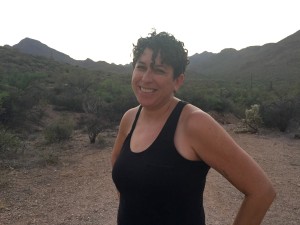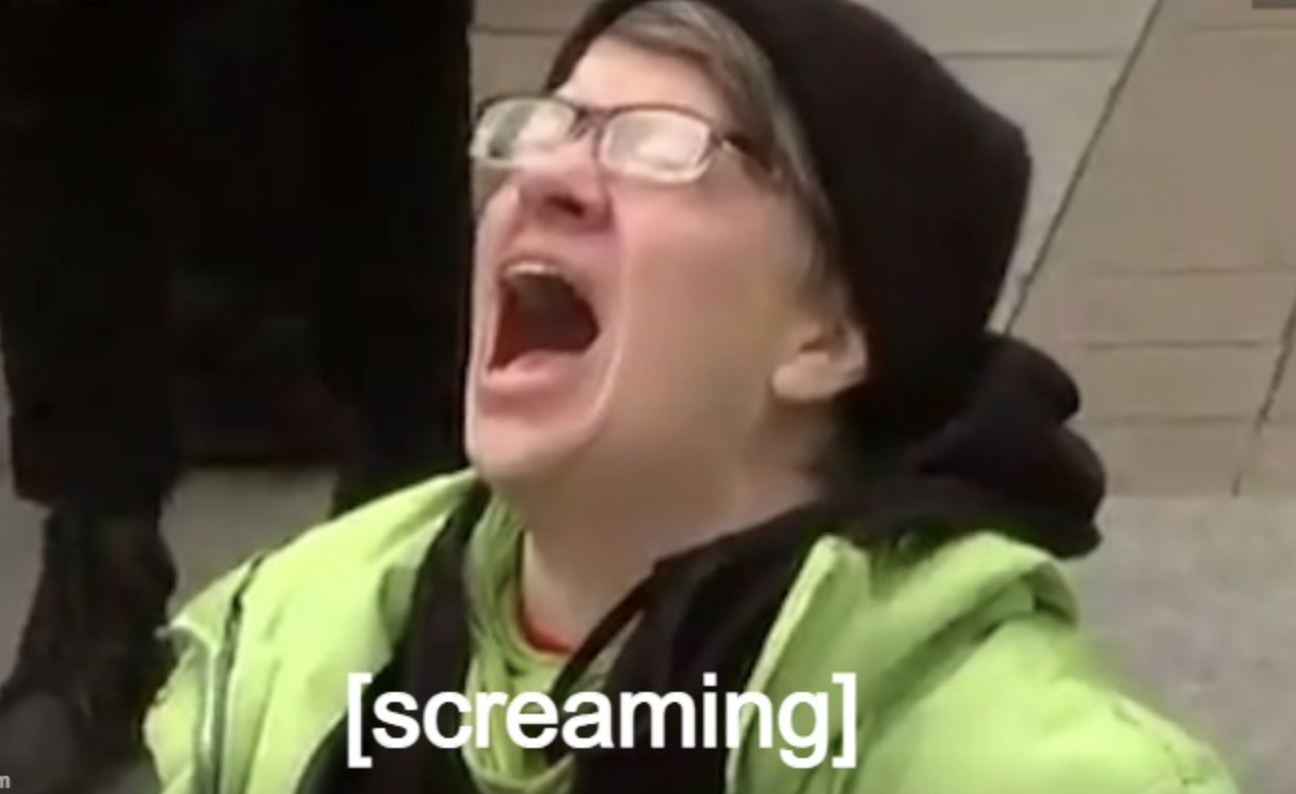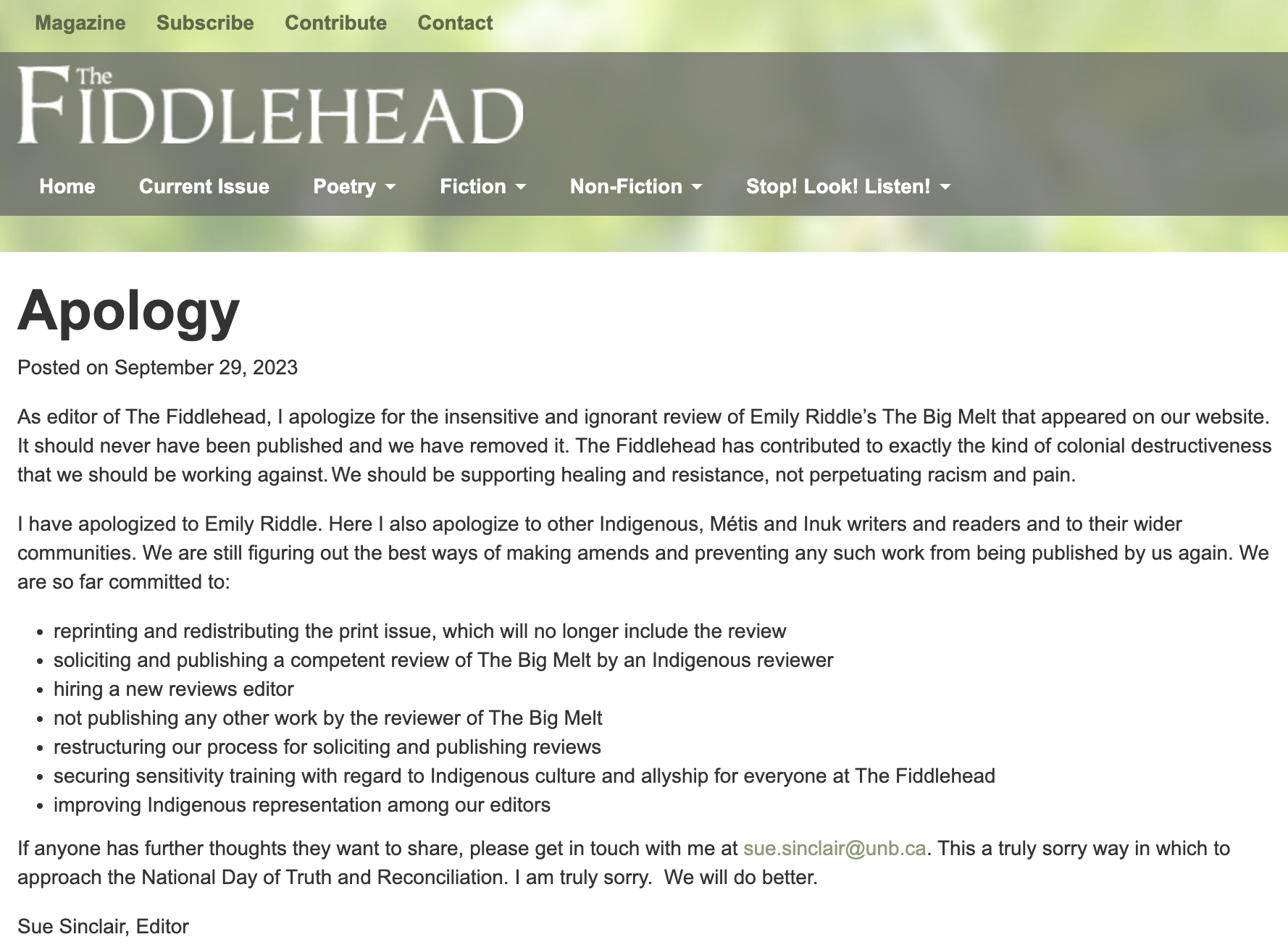 Reneé Bibby is the director of The Writers Studio Tucson, where she teaches advanced and beginner creative writing workshops. Her work has appeared in PRISM International, Thin Air, Third Point Press, The Worcester Review, and Wildness. She is contributing editor at the Wilds. www.reneebibby.com
Reneé Bibby is the director of The Writers Studio Tucson, where she teaches advanced and beginner creative writing workshops. Her work has appeared in PRISM International, Thin Air, Third Point Press, The Worcester Review, and Wildness. She is contributing editor at the Wilds. www.reneebibby.com
OM: While other creative writing schools rely on individual instructors to set up course structure, The Writers Studio method directs students to attempt a range of narrative voices and styles, clarifying their own unique voices in the process. Having a set method leads to consistency, but is something lost if instructors don’t have total freedom regarding course work?
RB: At the Writers Studio Tucson, we are asking students to practice narrative voice and styles. It’s the equivalent of the music student mastering scales, the art student spending hours on figure drawing. We want students to have such a firm grounding in the fundamentals that they feel equipped to create their best work. There’s a strange mythos in American culture that a novel or story springs fully formed from the writer, but there’s a lot of “grunt work,” so to speak. Hours honing craft. Even Picasso studied figure drawing.
There is space in the world for classes where an individual teacher sets the entire coursework, but as a Writer Studio teacher, I appreciate how much I contribute to a student’s fundamental strengths. Students always leave their teachers at some point, and I’m glad that I got in on the ground floor. They will travel to the top without me, but I was part of their early journey and I find that tremendously satisfying.
OM: Did the establishment of the Tucson branch of The Writers Studio create an anchoring point for the arts, or did the school open up there due to the artistic activity that was already present in the area? New Mexico, your neighbour, has a famously artsy culture. Can I find the same thing in Arizona? Is Tucson Arizona’s Santa Fe?
RB: About 12 years ago, a student of Philip Schultz’s at the Writers Studio in NY, the poet Eleanor Kedney, moved to Tucson and opened the first Writers Studio branch. I wasn’t involved at the time, so I can’t speak to what the scene was then, but what drew me to Tucson was the artistic vibrancy of the city—and the creative energy has panned out for me personally. Right now, The Writers Studio Tucson is the only long-term, in-depth writing program that’s not attached to a university or college, but we nestle into a pretty broad spectrum of great art and writing opportunities! So, while we may fill a niche, there are certainly good artistic energies in the community: University of Arizona Poetry Center is world-famous, and our poetry scene is brilliant with events like the Poetry Festival, Words on the Avenue, and our Tucson Youth Poetry Slam. Our Festival of Books grows bigger every year. There are readings, writer’s nooks, festivals, and one of the most kick-ass independent, solar-powered book stores. We have a lot for writers to do. And, we cost less than travel to Santa Fe … just sayin’.
OM: As director of The Writers Studio, and founding member of The Writers Buffet, I’m assuming you have a vast network of connections. Is such a network crucial for a writer’s success? If actual production is solitary, do writing-related activities sometimes crowd out your actual writing?
RB: My web of writers is pretty big (but by no means vast) because I am very dedicated to creating spaces for writers of all levels to connect with each other. I do some of that work under the auspices of The Writers Studio Tucson, coordinating social and educational events for teachers and students, but I also cultivate connections for myself as a writer separate from my work as a director and teacher. I host a Write Wednesday event every week, inviting any interested writer to spend a few hours after work writing in companionable quiet. We meet at a coffee shop and focus on writing. Sometimes that means a writer spends their time submitting stories to journals, but it could also be spent answering interview questions for writing blogs (ahem), writing, editing, or doing Facebook—there’s no judgment or direction; show up late, leave early, but either way there’s a chair at the table to sit with other writers. Everybody engages in their own endeavors, but we have the benefit of working near other writers and nobody is averse to the occasional interruption, a quick, “hey, what’s a good last name for a character who is going to be a villain, but the name can’t be too villainous?” and the table will understand your point and provide some legit last names. Or, “how long is your bio when you submit to a literary magazine?” and next thing you know everybody’s emailed their bio so you can compare. On any given day Wednesday, we may have a writer with a published book sitting next to a neophyte just beginning to send stories out to journals and they’re both working to advance their work and craft without any conniving or competition. And this—the connection to other human beings who understand my passion, my practices, and goals as a writer—is more vital to me than any other “political” connection within the writing community.
That social connection may not appeal to all writers, but it has certainly fueled and improved my own work. Because of that, I encourage my students to build connections. We may write in solitude but our writing itself is meant to connect to other humans. Sometimes we need to put our writing out to other humans, be it a writing group or just one other reader, who can give us the insight on how to improve. So, build a network, writers. It will make the writing life a lot less lonely and will improve your writing.
OM: My one very lonely American credit is The Chariton Review. I’ve had kind words from Alaska Quarterly Review, The Yale Review, and Indiana Review, but wider acceptance in the American market eludes me. An American writer friend mentioned that publication for him was often linked to personal connections with editors at conferences. Has that been your experience? I’m not shy about benefiting from personal connections, but sometimes it feels better to be published by a stranger because you can be sure the acceptance has not been influenced by friendship.
RB: I haven’t had that experience of your American writer friends; I haven’t had any pieces published through a personal connection. Friends and fellow writers have given me leads on publications but my stories so far have been selected by people I didn’t know at the time. I often follow journals and editors on Twitter before and after publication, but that’s the casual online connection of knowing a person’s name and online persona. I agree, to a large extent, that winning a position in a prestigious journal on one’s own merits is appealing, but every day, in incremental ways and sometimes large ones, we benefit from the munificence of our friendships; so, I’d be setting myself up for future hypocrisy if I were to say “never! Under any circumstances.” I get that sometimes a connection properly applied will lever us up a level in life.
OM: I noticed PRISM international in your credits list. Does your submission range extend off the continent to journals such as Stand and Granta? Is international publication a priority?
RB: Three of my publishing credits are from journals abroad: Wildness and Black&BLUE are both in the U.K., and PRISM international is Canadian. I’m keen for my work to reach wider markets than just America and while I haven’t yet actively sought them out (and maybe I should, given my track record), I’d happily send along a story to another part of the world. My father isn’t American—he’s from the British West Indies. I read literature outside the classic American cannon and would happily work with markets across the world; I’d like to think there’s global appeal to good stories.
OM: What has been most effective in promoting yourself as a writer? Contact with a constant flow of new writers through the school? Wide publication? Conferences? Social media presence? Readings?
RB: My day job is graphic design and marketing, so you’d think I’d have a really great plan to market myself as a writer, but alas, I do not. Because of my day job and a pretty relentless creative teaching schedule, I don’t travel to conferences (AWP 2018 or bust!). I have a website and Twitter, which are the two public platforms that I might ostensibly use to promote myself (like I just did with those links, right?), however, they’re mainly a platform for me to showcase photography, very sporadic comedy, and stories about my hair.
I was talking to my students the other day about the concept of building your “brand” in the writing world. Again, I come from marketing so my lingo tilts towards that world, but what I mean to say is basically this: where and what content will you put into the wider world that is about you, the writer, and not necessarily your writing? Elena Ferrante proves that a writer does not need a social media account to be a big deal in the writing world, but as writers, like all artists, we must have patronage to exist—and I mean this in the most classic sense as financial backing and more broadly as people who will consume our art. We’re part of a system, and the system has always demanded that the artist presents oneself in relation to the art. Curiosity about the artist, musician, the writer is not new; it has existed for a long as we’ve had the luxury for certain citizens to specialize in the arts. They grow our wheat, we write a play for them… And to be fair, our play is about those who grow the wheat and if they want to know who is mocking them for growing the wheat, well, who can fault them? I realize the question supposed that premise already and I just mucked about in the roots of the idea, but I wanted to emphasize that I understand the importance of this dimension of being a writer. That there’s a social contract that we sign and part of that includes promotion and public displays of our persona. I’m not doing it well, per se, and can’t offer any guidance except to say: you may not like the demand of a public image as a writer, but it’s real; you can ignore it, but you could also figure out a way to maximize it. If you figure that out, how to do that well, please write an article for Oscar’s blog.
OM: I love Ebonics, street language, and collegiate slang, but in some minds this instantly connects to cultural appropriation or worse. Slang is the disrespected vanguard of our language, but reading with a regional accent using street vocabulary is pretty dangerous territory for an old white dude. Or is it? Am I making something out of nothing here? What are the rules? What is allowed?
RB: Ah, that’s a huge and interesting topic! I debated passing on this, because it’s really too big for me to tackle in just a few paragraphs, but it’s interesting and an important part of our social role as writers. But to answer this question sincerely, I’d say my favorite article on this is from Kaitlyn Greenidge’s Who Gets to Write What? From the NY Times. She sums up my general take on this issue in literature, “Imagine the better, stronger fiction that could be produced if writers took this challenge to stretch and grow one’s imagination, to afford the same depth of humanity and interest and nuance to characters who look like them as characters who don’t, to take those stories seriously and actually think about power when writing — how much further fiction could go as an art.” If you write it deeply, lovingly, with good intent, and skill a writer can be successful at using dialects and slang. But, there’s no easy formula for how that works, and no amount of craft will protect a writer from the legitimate right of others to question their authenticity and right to use a voice that isn’t their own. It can be done, it can be done well, and it can still be problematic and offensive. There’s no easy way through that.
OM: I drove through your open carry state and didn’t see a single weapon. I’ve got to say I was a little disappointed after hearing all the stories, but I suppose it’s my fault for believing media hype. Is it considered a dick move to carry a holstered weapon into a grocery store? Is open carry simply a non-issue for 99% of the population? Your state’s wild-west attitude towards firearms does not seem to have led to an increase in gun violence. On the other hand, the District of Columbia and Chiraq, both major gun control jurisdictions, have downright scary stats. There doesn’t seem be a correlation between the number of guns available and the level of gun violence. President Bibby, what is the solution to gun violence? You’re quite close to Mexico. Current events have really put the focus on the border areas. How does a Hispanic voter look past the many insults and disrespect and decide to vote for Donald anyway? What is the political mood in your area? Has it become impossible to talk about politics?
RB: These questions were really fascinating, and I thought a lot about them. What surprised me the most was how much they made me aware of why I write fiction. I have very strong political beliefs about gun control, violence, poverty, border walls, the environment, and Trump. But, good-students-answer-questions went into hyper drive building cogent analysis, I also engaged with this parallel analysis of what it would mean to have an “official” view about the state of the world (or more specifically, these issues). If a reader of my fiction is interested in my opinion on an issue, then did I not just argue vehemently above that their curiosity about that is valid? Why, yes, I did. I am a socialist and an atheist. I believe in gun control; I believe in a woman’s right to choose, black lives matter, porous political boundaries, in equal rights for LGTBQ people, that climate change is real, all drugs should be legal, women should be allowed to fight in combat, and that voting is vital to the health of our democracy. But, I’m not an essayist. If a reader ever wants to understand the nuances and personal investment on an issue, it’ll be found in my writing.
I am not, by any stretch of the imagination, saying that is what all writers should do! I am proud and supportive of the writers, musicians, artists, and entertainers who take very public stances on issues. If our society has specialized enough to have artists, it is because we require individuals whose sole purpose is to reflect back the ugly visage of our own society and say, gotta make a change, people. We need to do better. We need to Michael Jackson this shit and start with the man in the mirror! Some writers will do that very loudly in their own voice, but I have discovered, thanks to your blog, I am not one of those writers. I am much too shy and not interested in debating people in public forums. In person, I will talk about any issue with anybody, but as far as using my power as an artist to make change—that will be in the power of story.




Wow. Lived this so very much! Educational, inspiring, and an altogether lovely use of language.
I’m glad you enjoyed the interview. I am often surprised by the generosity of my interviewees.